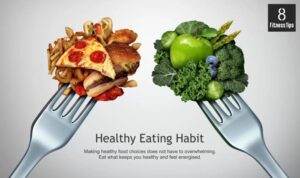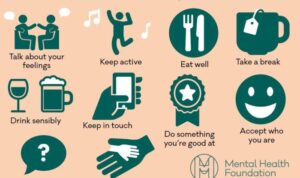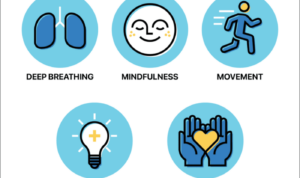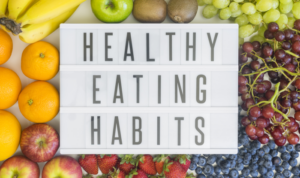Balanced Diet Tips are key to a healthy lifestyle, providing insights on the importance of nutrition, food groups, and practical strategies for maintaining a well-rounded diet. Dive into this guide for a hip high school take on staying balanced and energized!
From understanding why a balanced diet is crucial to exploring common mistakes to avoid, this guide has got you covered with all the juicy details you need to know.
Importance of a Balanced Diet: Balanced Diet Tips
Maintaining a balanced diet is crucial for overall health as it provides the necessary nutrients for our bodies to function properly. A balanced diet helps prevent various health issues and promotes general well-being.
Nutrients in a Balanced Diet
A balanced diet should include a variety of nutrients such as carbohydrates, proteins, fats, vitamins, and minerals. These nutrients play different roles in the body and are essential for growth, energy production, immune function, and overall health.
Impact on Energy Levels and Weight Management
Eating a balanced diet can help regulate energy levels throughout the day. By consuming a mix of carbohydrates, proteins, and fats, our bodies can maintain a steady energy supply. Additionally, a balanced diet can support weight management by providing the right nutrients without excess calories that can lead to weight gain.
Benefits for Different Age Groups
A balanced diet is beneficial for individuals of all ages. For children and teenagers, it supports growth and development. In adults, it helps maintain overall health and prevent chronic diseases. For older adults, a balanced diet can support healthy aging and reduce the risk of age-related health issues.
Components of a Balanced Diet

Eating a balanced diet is crucial for maintaining good health and overall well-being. A balanced diet includes a variety of nutrients that are essential for the body to function properly.
Carbohydrates:
Carbohydrates are the body’s main source of energy. They are found in foods like whole grains, fruits, vegetables, and legumes. Examples include brown rice, quinoa, sweet potatoes, and bananas.
Proteins:
Proteins are important for building and repairing tissues in the body. Good sources of protein include lean meats, poultry, fish, eggs, dairy products, and plant-based sources like tofu and legumes. Examples include chicken breast, salmon, Greek yogurt, and lentils.
Fats:
Fats are essential for absorbing certain vitamins and providing energy. Healthy sources of fats include avocados, nuts, seeds, olive oil, and fatty fish like salmon. Examples include almonds, chia seeds, avocado, and salmon.
Vitamins:
Vitamins are necessary for various bodily functions, such as immune support and cell growth. They can be found in fruits, vegetables, whole grains, dairy products, and fortified foods. Examples include oranges (Vitamin C), spinach (Vitamin A), and dairy products (Vitamin D).
Minerals:
Minerals are important for bone health, fluid balance, and many other functions in the body. Good food sources of minerals include leafy greens, nuts, seeds, dairy products, and whole grains. Examples include kale (calcium), almonds (magnesium), and pumpkin seeds (iron).
Tips for Achieving a Balanced Diet

Eating a balanced diet is crucial for overall health and well-being. Here are some tips to help you achieve a balanced diet:
Meal Planning Strategies
- Plan your meals in advance to ensure you include a variety of food groups.
- Focus on incorporating whole grains, lean proteins, fruits, vegetables, and dairy into your meals.
- Avoid skipping meals and aim for regular eating times throughout the day.
- Limit processed foods and opt for homemade meals whenever possible.
Portion Control and Moderation, Balanced Diet Tips
- Use smaller plates to help control portion sizes and prevent overeating.
- Listen to your body’s hunger and fullness cues to avoid eating more than necessary.
- Avoid eating in front of screens as it can lead to mindless eating and overconsumption.
- Practice mindful eating by savoring each bite and slowing down during meals.
Incorporating Fruits and Vegetables
- Add fruits to your breakfast, snacks, and desserts for a natural source of sweetness.
- Include vegetables in your main meals by adding them to soups, salads, stir-fries, or as side dishes.
- Experiment with different cooking methods like roasting, steaming, or grilling to enhance the flavor of fruits and vegetables.
- Keep a variety of fresh, frozen, and canned fruits and vegetables on hand for convenience.
Significance of Hydration
- Drink plenty of water throughout the day to stay hydrated and support bodily functions.
- Avoid sugary drinks and opt for water, herbal teas, or infused water for added flavor.
- Carry a reusable water bottle with you to remind yourself to drink water regularly.
- Monitor your urine color to ensure you are adequately hydrated – aim for pale yellow to clear urine.
Common Mistakes to Avoid
When it comes to maintaining a balanced diet, there are several common mistakes that people often make. These mistakes can lead to an unbalanced diet and can have negative effects on overall health.
Risks of Excessive Consumption of Processed Foods
Processed foods are often high in sugar, salt, and saturated fats, which can have detrimental effects on health if consumed in excess. These foods are typically low in essential nutrients and can contribute to weight gain, high blood pressure, and other health issues. It’s important to limit the consumption of processed foods and opt for whole, unprocessed foods whenever possible.
Tips to Limit Sugar, Salt, and Saturated Fats
– Limit sugary drinks and opt for water or unsweetened beverages.
– Choose whole fruits over fruit juices, which can be high in added sugars.
– Use herbs and spices to flavor food instead of adding salt.
– Opt for lean protein sources like poultry, fish, and legumes instead of high-fat meats.
– Replace saturated fats with healthier fats like olive oil, avocado, and nuts.
Mindful Eating Practices to Avoid Overeating
Practicing mindful eating can help prevent overeating and promote a healthy relationship with food. Some tips for mindful eating include:
– Eating slowly and savoring each bite.
– Paying attention to hunger and fullness cues.
– Avoiding distractions while eating, such as watching TV or using electronic devices.
– Listening to your body and stopping when you feel satisfied, not overly full.












